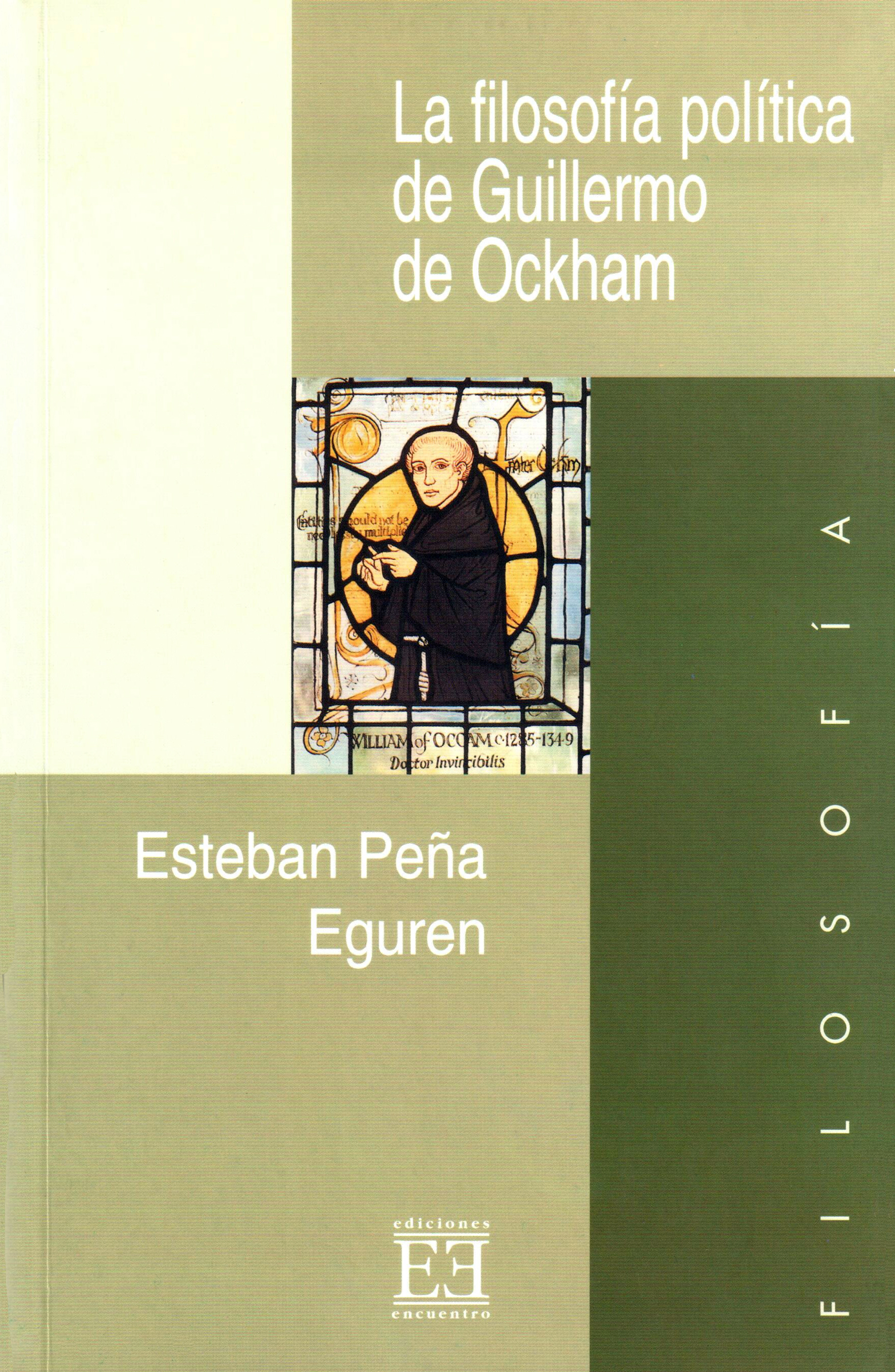

Ingresó en la orden franciscana y se inició en la docencia de lógica y teología en Oxford y en otras escuelas franciscanas.

It includes texts by Carlos Jiménez and Luis Francisco Pérez. Guillermo de Occam (en inglés Willam of Ockham), nació en Ockham, hacia el año 1280, y murió en Munich hacia el 1349.

In 2021, the artist's book Ockham's Razor was published, in leporello format, based on this exhibition. Guillermo de Ockham Filósofo escolástico y escritor polémico del siglo catorce, nacido en o cerca del pueblo de Ockham en Surrey, Inglaterra, aproximadamente en el 1280 probablemente murió en. "The simplest and most sufficientĮxplanation is the most probable, but not necessarily the true one. Ockham's razor is not considered an irrefutable principle, andĬertainly not a scientific result. Same consequences, the simplest theory is more presumable to be correct than This implies that, when two theories under equal conditions have the Historically, Ockham has been cast as the outstanding opponent of Thomas Aquinas (1224-1274): Aquinas perfected the great medieval synthesis of faith and reason and was canonized. To which: under equal of conditions, the simplest explanation is usually the most El voluntarismo de Duns Scotus y Guillermo de Ockham Duns Scotus ( 1265-1308 ), monje franciscano nacido en Escocia y profesor en Oxford, difiri de la. 1349) William of Ockham, also known as William Ockham and William of Occam, was a fourteenth-century English philosopher. 137-147 Este artculo expone y analiza un suceso, al parecer, hasta ahora ignorado por la historiografa eclesistica. This methodological and philosophical principle is attributed to the Franciscan friar Guillermo de Ockham (1280-1349), according La encclica apcrifa de Len XIII: un episodio del anticlericalismo latinoamericano en Revista Cientfica Guillermo Ockham, vol. Ockham's razor is a principle of economy or principle of Freedom is shown as a new reality against natural determination, thus shaping the first medieval version for the modern dilemma of freedom versus determinism.The exhibition of Ramón Mateos is a visual reflection Diffusion: Specialized databases (1/101) database. ICDS values from previous years will be available in the archived versions of MIAR.
Guillermo de ockham free#
Only the free and conscious agent acts towards and end established by himself while the physical universe is predictable and perfectly determined. With this change, we want to focus on our core objective: to gather useful information for those who have to evaluate journals, but without being a source for ranking journals according to a single metric. Metaphysic and Anthropology, which support this belief, have been materially changed as compared to the main trends of the XIII Century: nature lacks a specific direction it is not determined by truth and good. Acusado de herejía, se acogió a la protección del emperador. La navaja de Ockham (a veces escrito Occam u Ockam ), principio de economa o principio de parsimonia ( lex parsimoniae) es un principio metodolgico y filosfico atribuido al fraile franciscano, filsofo y lgico escolstico Guillermo de Ockham (1280-1349), segn el cual en igualdad de condiciones, la explicacin. Ockham sets aside this key element of Aristotelianism by changing the approach of study he supports that will is an active power and its key option -acting or not acting- does not depend on the human intellect but on itself as a causa sui. Guillermo de Ockham (1300-1350) nació en la aldea de Ockham, a 30 kilómetros de Londres. Aunque no acuñó el término, su forma característica de hacer deducciones inspiró a otros escritores a desarrollar la heurística. Ockham's approach uses the Aristotelian language and doctrine of free will, but from a completely different point of view since the Aristotelian free will results from a first recognition of a number of possibilities from which the agent opt then freedom is an intellectual capability. El concepto de la navaja de Occam se atribuye a Guillermo de Ockham, un fraile, filósofo y teólogo de los siglos XIII y XIV. La navaja de Occam (o de Ockham) es un principio de razonamiento formulado al final de la Edad Media, y conocido bajo varios nombres: principio de economía, principio de parsimonia o de simplicidad.Es atribuido al monje franciscano y filósofo Guillermo de Ockham, aunque era conocido antes de él.

That makes it possible to set the limits in which the issue is framed according to a model strongly inspired in the principle of divine omnipotence. First, the basis for the new gnoseo-ontological justification of the reality proposed by the Ockham's followers is established. The freedom issue has not been systematically considered by Ockham that is why the author approaches it from the point of view of the methodological principles examined by the Venerabilis Inceptor in order to reach its development.


 0 kommentar(er)
0 kommentar(er)
